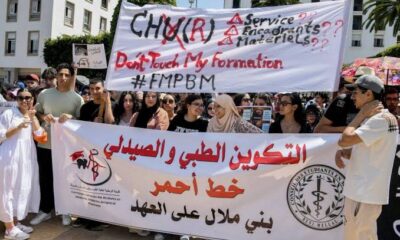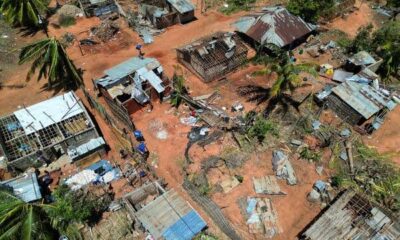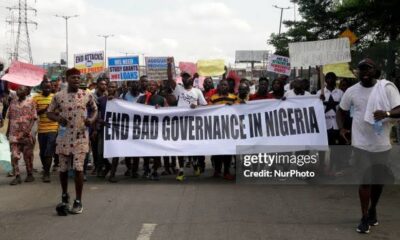Strictly Personal
How Ghana can map its energy transition journey by Nafi Chinery
Published
3 years agoon
The good news is that Ghana now has a golden opportunity to develop a comprehensive and context-specific plan for navigating the global energy transition. In response to COP26 and Ghanaian CSOs’ demands for a national energy transition policy, the government launched the National Energy Transition Committee (NETC) in December 2021. The committee is tasked with developing a national policy document on steps the country can take to successfully navigate the global energy transition.
All countries have a vital role and interest in avoiding catastrophic climate impacts and safeguarding a livable planet. Like the citizens of most developing countries, Ghanaians are increasingly affected by climate change, despite bearing little responsibility for the emissions that are causing it.
At the COP26 climate conference last year, governments reaffirmed their commitment to the goal of limiting global warming to 1.5°C. Achieving this will require a colossal and unprecedented shift away from fossil fuels to renewable energy sources like wind and solar — as well as the provision of clean, affordable and reliable energy for the nearly one billion people currently living without it.
The wealthiest countries that have polluted the most should hold the primary responsibility for tackling climate change, both in cutting their emissions first and fastest, and in providing climate finance and support to countries like Ghana. Ghana’s President Nana Akufo-Addo emphasised this responsibility during COP26 when he called for a fair and equitable solution that “recognises the historical imbalances between the high emitters and low emitters.”
To date, however, wealthy countries have under-promised and underdelivered. They have yet to reduce emissions to the extent necessary to avoid warming beyond 2°C, let alone 1.5°C. And, as President Akufo-Addo also mentioned, they have failed to honour their 2010 promise of $100 billion per year to support developing countries’ responses to climate change. Tragically, the consequences will be felt by all for decades to come.
Ghana’s agency in the energy transition
Despite this compound injustice and these broken promises, Ghana’s future ultimately depends on its own leadership and effective planning. Ghana is still a resource-dependent country, with more than a quarter of its export earnings coming from oil and gas alone. Over the past decade, the oil sector has contributed around $6.5 billion of direct revenue to Ghana’s budget. Without a plan to respond to the global energy transition, a significant decline in oil revenues could plunge Ghana into a deep crisis.
In the last decade, the government has allocated $2 billion to the Ghana National Petroleum Corporation (GNPC). These investments have financed equity stakes in exploration, development and general operations in oil-producing fields. NRGI’s Risky Bet report shows that, globally, oil and gas projects currently in the pipeline and worth an estimated $400 billion, run the risk of not breaking even.
At a minimum, the government should avoid making bad decisions — those that threaten the country’s economic and fiscal outlook. But Ghana’s record does not inspire confidence. In the last decade, the government has allocated $2 billion to the Ghana National Petroleum Corporation (GNPC). These investments have financed equity stakes in exploration, development and general operations in oil-producing fields. NRGI’s Risky Bet report shows that, globally, oil and gas projects currently in the pipeline and worth an estimated $400 billion, run the risk of not breaking even. Against the backdrop of the global energy transition, GNPC’s ambitions of becoming an operator are risky.
In July 2021, Ghana’s Ministry of Energy and GNPC declared their intention to sink an additional $1.65 billion of public money into shares of Aker Energy’s oil project — yet another “risky bet” given the increasing pace of the global energy transition, which would result in poor returns on such a large-scale investment. Furthermore, such a decision would divert precious capital that the government could invest in more socially beneficial programmes, such as education or cheaper and more diverse energy sources, that could power development in Ghana. Thankfully, after severe criticism from civil society organisations, the public and industry oversight bodies in Ghana, the government paused its investment plans in the Aker shares.
No doubt, Ghana’s economic and fiscal outlook is uncertain. The 2018/19 oil licensing round remains unconcluded and oil production is projected to decline. International companies are redirecting their investments, and projects have been delayed. State oil revenues peaked in 2018, at 10 per cent of total government revenue, and dropped to seven per cent in 2020, due to the coronavirus pandemic. The ongoing war between Russia and Ukraine and the related global energy crisis now present huge uncertainties for the oil sector, including the prospect of a global recession.
The good news is that Ghana now has a golden opportunity to develop a comprehensive and context-specific plan for navigating the global energy transition. In response to COP26 and Ghanaian CSOs’ demands for a national energy transition policy, the government launched the National Energy Transition Committee (NETC) in December 2021. The committee is tasked with developing a national policy document on steps the country can take to successfully navigate the global energy transition. The NETC is also tasked with conducting a nationwide consultation on Ghana’s energy transition. At the first regional forum organised by the Ministry of Energy on behalf of the NETC, Vice President Dr Mahamudu Bawumia said the NETC’s nationwide consultations are key to success: “We need to develop plans and implement options that people can relate to.” He also stressed the importance of equal opportunities for all citizens to enjoy the benefits of the energy transition and ensure social justice in the process.
The transition plans must address Ghana’s growing energy needs. Decisions about energy sources and related services should be based on analysing different solutions over the long term, mindful of the likelihood that many factors (such as the competitiveness of renewables and gas) may change quickly over the coming decade. Accordingly, the NETC should review the role of fossil gas over the course of the transition…
Essential elements for Ghana’s approach
The establishment of the NETC is an important and valuable first step. The following recommendations, if adopted, would put the committee on track to deliver a successful energy transition plan:
- Include all voices. Ghana’s plan should be inclusive and leave no citizen behind. The plan should address how government will support local economies with relevant training, technology and finances to take advantage of the new opportunities in the transition;
- Enlist experts. The NETC should engage sector experts working on the energy transition to help ensure that the plan is informed by data and technical analysis;
- Promote open dialogue. Open and honest engagement between all relevant stakeholders will help build consensus and ownership around a transition pathway that is widely considered by citizens as viable and necessary. A shared understanding of the risks and opportunities of the energy transition is critical to agree on a shared strategy;
- Plan in harmony and coordination with existing policies. The energy transition plan should harmonise existing policy objectives and remedy the systemic inefficiencies in existing policy implementation;
- Improve governance of climate finance. The Ministry of Finance should spell out the role of international climate finance in energy transition planning and interrelate the energy transition plan with Ghana’s (conditional) nationally determined contributions under the Paris Agreement. Across the board, this requires building the state’s capacity to receive and deploy international climate finance;
- Take a critical and dynamic approach to energy options. The transition plans must address Ghana’s growing energy needs. Decisions about energy sources and related services should be based on analysing different solutions over the long term, mindful of the likelihood that many factors (such as the competitiveness of renewables and gas) may change quickly over the coming decade. Accordingly, the NETC should review the role of fossil gas over the course of the transition — not assume from the outset that gas will be a constant;
- Assess implications for existing institutions. Ghana’s energy transition plan should consider the role of existing institutions such as GNPC in light of the long-term, macro pathway, rather than starting with assumptions about their purpose and role. Making the right investment decisions will require transparency and robust risk assessment.
Nafi Chinery is the West Africa (Anglophone) regional manager at the Natural Resource Governance Institute (NRGI).
You may like
-


Ghana’s Afua Asantewaa begins second GWR sing-a-thon attempt
-


Ghana’s Supreme Court dismisses suit challenging anti-LGBT bill
-


Ghana: President-elect Mahama appoints anti-corruption team
-


UNESCO lists Ghana’s Kente cloth as cultural heritage
-


Ghana will not leave IMF but wants adjustments, says President-elect
-


Ghanaian singer Afua Asantewaa takes another shot at GWR with sing-a-thon
Strictly Personal
Let’s merge EAC and Igad, By Nuur Mohamud Sheekh
Published
4 weeks agoon
November 27, 2024
In an era of political and economic uncertainty, global crises and diminishing donor contributions, Africa’s regional economic communities (RECs) must reimagine their approach to regional integration.
The East African Community (EAC) and the Intergovernmental Authority on Development (Igad), two critical RECs in East Africa and the Horn of Africa have an unprecedented opportunity to join forces, leveraging their respective strengths to drive sustainable peace and development and advance regional economic integration and promote the African Continental Free Trade Area (AfCFTA).
Already, four of the eight Igad member states are also members of the EAC and, with Ethiopia and Sudan showing interest, the new unified bloc would be formidable.
Igad’s strength lies in regional peacemaking, preventive diplomacy, security, and resilience, especially in a region plagued by protracted conflicts, climate challenges, and humanitarian crises. The EAC, on the other hand, has made remarkable strides in economic integration, exemplified by its Customs Union, Common Market, and ongoing efforts toward a monetary union. Combining these comparative advantages would create a formidable entity capable of addressing complex challenges holistically.
Imagine a REC that pairs Igad’s conflict resolution strengths with the EAC’s diplomatic standing and robust economic framework. Member states of both are also contributing troops to peacekeeping missions. Such a fusion would streamline efforts to create a peaceful and economically prosperous region, addressing the root causes of instability while simultaneously promoting trade investment and regional cooperation.
These strengths will be harnessed to deal with inter-state tensions that we are currently witnessing, including between Ethiopia and Somalia over the Somaliland MoU, strained relations between Djibouti and Eritrea, and the continually deteriorating relations between Eritrea and Ethiopia.
The global economy experienced as a result of the COVID-19 pandemic, compounded by the Ukraine war and competing global crises, has strained donor countries and reduced financial contributions to multilateral organisations and African RECs. Member states, many of which are grappling with fiscal constraints, are increasingly unable to fill this gap, failing to make timely contributions, which is in turn affecting key mandate areas of Igad and EAC, and staff morale.
A merger between Igad and EAC would alleviate this financial pressure by eliminating redundancies. Shared administrative systems, integrated programmes, and a unified leadership structure would optimise resources, enabling the new REC to achieve more with less. Staff rationalisation, while sensitive, is a necessary step to ensure that limited funds are channelled toward impactful initiatives rather than duplicative overheads.
The African Union (AU) envisions a fully integrated Africa, with RECs serving as the building blocks of the AfCFTA. A unified EAC-Igad entity would become a powerhouse for regional integration, unlocking economies of scale and harmonising policies across a wider geographical and economic landscape.
This merger would enhance the implementation of the AfCFTA by creating a larger, more cohesive market that attracts investment, fosters innovation, and increases competitiveness. By aligning trade policies, infrastructure projects, and regulatory frameworks, the new REC could serve as a model for others, accelerating continental integration.
The road to integration is not without obstacles. Political will, divergent institutional mandates, and the complexity of harmonising systems pose significant challenges. However, these hurdles are surmountable through inclusive dialogue, strong leadership, and a phased approach to integration.
Member states must prioritise the long-term benefits of unity over short-term political considerations. Civil society, the private sector, the youth, and international partners also have a critical role to play in advocating for and supporting this transformative initiative.
The time for EAC and Igad to join forces is now. By merging into a single REC, they would pool their strengths, optimise resources, and position themselves as a driving force for regional and continental integration. In doing so, they would not only secure a prosperous future for their citizens and member states but also advance the broader vision of an integrated and thriving Africa.
As the world grapples with crises, Africa must look inward, embracing the power of unity to achieve its potential. A combined Igad-EAC is the bold step forward that the continent needs.
Nuur Mohamud Sheekh, a diplomatic and geopolitical analyst based in London, is a former spokesperson of the Igad Executive Secretary. X: @NuursViews
Strictly Personal
Budgets, budgeting and budget financing, By Sheriffdeen A. Tella, Ph.D.
Published
1 month agoon
November 20, 2024
The budget season is here again. It is an institutional and desirable annual ritual. Revenue collection and spending at the federal, State and local government levels must be authorised and guided by law. That is what budget is all about. A document containing the estimates of projected revenues from identified sources and the proposed expenditure for different sectors in the appropriate level of government. The last two weeks have seen the delivery of budget drafts to various Houses of Assembly and the promise that the federal government would present its draft budget to the National Assembly.
Do people still look forward to the budget presentation and the contents therein? I am not sure. Citizens have realised that these days, governments often spend money without reference to the approved budget. A governor can just wake up and direct that a police station be built in a location. With no allocation in the budget, the station will be completed in three months. The President can direct from his bathroom that 72 trailers of maize be distributed to the 36 states as palliatives. No budget provision, and no discussion by relevant committee or group.
We still operate with the military mentality. We operated too long under the military and of the five Presidents we have in this democracy, two of them were retired military Heads of State. Between them, they spent 16 years of 25 years of democratic governance. Hopefully, we are done with them physically but not mentally. Most present governors grew up largely under military regimes with the command system. That is why some see themselves as emperor and act accordingly. Their direct staff and commissioners are “Yes” men and women. There is need for disorientation.
The importance of budget in the art of governance cannot be overemphasized. It is one of the major functions of the legislature because without the consideration and authorisation of spending of funds by this arm of government, the executive has no power to start spending money. There is what we refer to as a budget cycle or stages. The budget drafting stage within the purview of the executive arm is the first stage and, followed by the authorisation stage where the legislature discusses, evaluates and tinkers with the draft for approval before presenting it to the President for his signature.
Thereafter, the budget enters the execution phase or cycle where programmes and projects are executed by the executive arm with the legislature carrying out oversight functions. Finally, we enter the auditing phase when the federal and State Auditors verify and report on the execution of the budgets. The report would normally be submitted to the Legislature. Many Auditor Generals have fallen victim at this stage for daring to query the executives on some aspects of the execution in their reports.
A new budget should contain the objectives and achievements of the preceding budget in the introduction as the foundation for the budget. More appropriately, a current budget derives its strength from a medium-term framework which also derives its strength from a national Development Plan or a State Plan. An approved National Plan does not exist currently, although the Plan launched by the Muhammadu Buhari administration is in the cooler. President Tinubu, who is acclaimed to be the architect of the Lagos State long-term Plan seems curiously, disillusioned with a national Plan.
Some States like Oyo and Kaduna, have long-term Plans that serve as the source of their annual budgets. Economists and policymakers see development plans as instruments of salvation for developing countries. Mike Obadan, the former Director General of the moribund Nigeria Centre for Economic and Management Administration, opined that a Plan in a developing country serves as an instrument to eradicate poverty, achieve high rates of economic growth and promote economic and social development.
The Nigerian development plans were on course until the adoption of the World Bank/IMF-inspired Structural Adjustment Programme in 1986 when the country and others that adopted the programme were forced to abandon such plan for short-term stabilisation policies in the name of a rolling plan. We have been rolling in the mud since that time. One is not surprised that the Tinubu administration is not looking at the Buhari Development Plan since the government is World Bank/IMF compliant. It was in the news last week that our President is an American asset and by extension, Nigeria’s policies must be defined by America which controls the Bretton Woods institutions.
A national Plan allows the citizens to monitor quantitatively, the projects and programmes being executed or to be executed by the government through the budgeting procedure. It is part of the definitive measures of transparency and accountability which most Nigerian governments do not cherish. So, you cannot pin your government down to anything.
Budgets these days hardly contain budget performance in terms of revenue, expenditure and other achievements like several schools, hospitals, small-scale enterprises, etc, that the government got involved in successfully and partially. These are the foundation for a new budget like items brought forward in accounting documents. The new budget should state the new reforms or transformations that would be taking place. Reforms like shifting from dominance of recurrent expenditure to capital expenditure; moving from the provision of basic needs programmes to industrialisation, and from reliance on foreign loans to dependence on domestic fund mobilisation for executing the budget.
That brings us to the issue of budget deficit and borrowing. When an economy is in recession, expansionary fiscal policy is recommended. That is, the government will need to spend more than it receives to pump prime the economy. If this is taken, Nigeria has always had a deficit budget, implying that we are always in economic recession. The fact is that even when we had a surplus in our balance of payment that made it possible to pay off our debts, we still had a deficit budget. We are so used to borrowing at the national level that stopping it will look like the collapse of the Nigerian state. The States have also followed the trend. Ordinarily, since States are largely dependent on the federal government for funds, they should promote balanced budget.
The States are like a schoolboy who depends on his parents for school fees and feeding allowance but goes about borrowing from classmates. Definitely, it is the parents that will surely pay the debt. The debt forgiveness mentality plays a major role in the process. Having enjoyed debt forgiveness in the past, the federal government is always in the credit market and does not caution the State governments in participating in the market. Our Presidents don’t feel ashamed when they are begging for debt forgiveness in international forum where issues on global development are being discussed. Not less than twice I have watched the countenance of some Presidents, even from Africa, while they looked at our president with disdain when issues of debt forgiveness for African countries was raised.
In most cases, the government, both at the federal and state cannot show the product of loans, except those lent by institutions like the World Bank or African Development Bank for specific projects which are monitored by the lending institutions. In other cases, the loans are stolen and transferred abroad while we are paying the loans. In some other cases, the loans are diverted to projects other than what the proposal stated. There was a case of loans obtained based on establishing an international car park in the border of the State but diverted to finance the election of a politician in the State. The politician eventually lost the election but the citizens of the State have to be taxed to pay the loan. Somebody as “Nigeria we hail thee”.
Transformation in budgeting should commence subsequently at the State and federal level. Now that local government will enjoy some financial autonomy and therefore budgeting process, they should be legally barred from contracting foreign loans. They have no business participating in the market. They should promote balanced budget where proposed expenditures must equal the expected revenues from federal and internal sources. The State government that cannot mobilise, from records, up to 40 percent of its total budget from IGR should not be supported to contract foreign loans. The States should engage in a balanced budget. The federal government budget should shift away from huge allocations to recurrent expenditure towards capital expenditure for capital formation and within the context of a welfarist state.
Sheriffdeen A. Tella, Ph.D.
EDITOR’S PICK


Moroccan doctors stage nationwide protest in ‘Week of Anger’
Moroccan doctors across the country on Tuesday staged a nationwide protests in what is known as “Week of Anger,” accusing...


Zambian drug agency declares ex-President Lungu’s daughter wanted
The Zambian Drug Enforcement Commission (DEC) has declared the daughter of former president Edgar Lungu, Tasila Lungu, wanted in connection...


‘Pray for leaders to serve you diligently,’ President Tinubu tells Nigerians
President Bola Tinubu has called on Nigerians to develop the habit of praying for their leaders to enable them serve...


World Bank doubts Ethiopia-IMF debt assessment
Some officials of the World Bank have questioned if the study supporting Ethiopia’s debt restructuring may be “faulty” after criticising...


Death toll from Cyclone Chido in Mozambique hits 94
he death toll from the Cyclone Chido which stuck Mozambique last week has risen to 94 with hundreds still missing....


Facebook returns to Uganda after 4-year ban
After four years of being in the cooler as a result of suspension by government, Facebook, now Meta, is making...


Nigeria on the right path despite hardship, criticism— President Tinubu
Nigerian President, Bola Ahmed Tinubu, has insisted that the country is moving in the right direction despite the criticism of...


Zambian NGO decries persistent corruption, says governance in 2024 marked by mixed fortunes
A Non-Governmental Organization in Zambia, the Gender Organizations Coordinating Council (NGOCC), has decried what it described as persistent corruption in...


Sad day for African football as promising Kenyan star passes on
he African football fraternity was thrown into mourning following the untimely demise of promising Kenyan striker, Ezekiel Otuoma, who died...


Nigeria: Police dismiss Amnesty Intl’s report on killing of protesters, demand apology
The Nigeria Police has rejected a report by Amnesty International that accused the force of killing protesters during the #Endbadgovernance...


